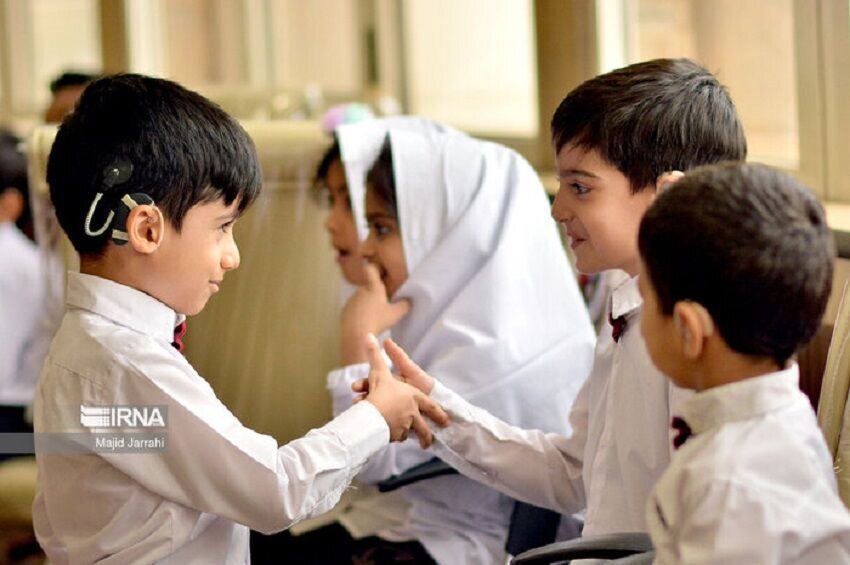Iran among 7 countries implementing newborn hearing screening program

TEHRAN – Iran is one of the seven countries in the world carrying out a newborn hearing screening program (NHSP) in partnership with the World Health Organization (WHO), with the Welfare Organization covering 227,000 deaf individuals, an official with the Welfare Organization has said.
Some 170,000 out of 227,000 individuals with hearing problems are in moderate, severe, and profound hearing loss groups. The Welfare Organization offers a wide range of services to people with hearing impairments, depending on the severity of their problems, from paying for nursing care, providing hearing aids and rehabilitation services, carrying out hearing screening, and genetic counselling in order to prevent newborn deafness, IRNA quoted Zahra Noparast as saying.
She made the remarks on the occasion of the International Week of Deaf People, which is being held from September 22 to 28.
Screening should be carried out in the first three months of a baby’s life so that identified children receive intervention before 6 months of age; otherwise, it will result in loss of speech, she noted.
Currently, 99 hearing impairment centers and 28 integrated centers are operating in the country, providing services such as hearing aid prescriptions, cochlear implants, educational counseling, and rehabilitation services like speech therapy, occupational therapy, psychological, and counseling services, Noparast highlighted.
The Welfare Organization pays 50 million rials (about 50 dollars) per child to rehabilitation centers annually, and their families pay less than ten million rials (around 10 dollars), the official said.
Presently, 55,523 individuals are benefiting from these services. The children receive direct services and the families learn how to communicate with their children and provide a supportive life environment for them, she noted.
Supported by the Welfare Organization, the ministry of health implants cochlear devices free of charge for children who are less than six years old. Over the past Iranian calendar year (March 2024 – March 2025), the organization offered over 94,000 services, of which 80,300 focused on providing hearing aids. Moreover, 3,050 individuals received a cochlear implant, Noparast stated.
According to global statistics, hearing impairment is on the rise, particularly among young people due to the constant use of headphones, exposure to loud noises, and noisy work environments. Age-related hearing loss is a common problem as a person grows older. Therefore, it is essential to raise public awareness on how to prevent the prevalence of the problem.
Newborn hearing screening program kicked off in the country in the Iranian year 1384 (2005-2006), aiming to diagnose hearing impairments within the first month of age and help diagnosed children receive intervention before six months of age.
Some 95 percent of newborns are screened for hearing; the program has identified over 50,000 infants with hearing impairments using more than 700 stationary and mobile screening, benefiting from nongovernmental sectors’ services. Consequently, it has lowered the average age of identification of infants with hearing loss from 3 to 1 or 1.5 years.
In April, Jafar Jandaqi, an official with the health ministry, said that hearing impediments or hearing loss can be treated by timely detection and early intervention, such as the use of hearing aids or cochlear implants.
Highlighting that Iran is sharing its expertise and technology in treating hearing loss with other countries, Jandaqi said, “More than 50 percent of hearing loss and problems in adults and 60 percent of hearing loss and impediments in children can be prevented through health care measures.”
The International Week of Deaf People is being observed with the theme of ‘No Human Rights Without Sign Language Rights’.
Daily themes include September 22, ‘Deaf communities leading’, September 23, ‘No Human Rights Without Sign Language Rights’, September 24, ‘Multilingual education for deaf learners’, September 25, ‘Deaf Rights in Crises’, September 26, ‘Recognition of National Sign Language’, September 27, ‘Sign Language Access services’, September 28, ‘Set the basis for the future: together we can innovate, inspire, and impact!’.
MT/MG
